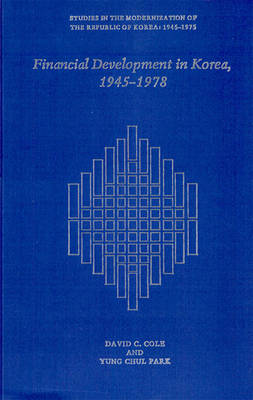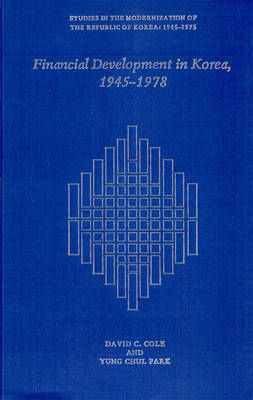
- Afhalen na 1 uur in een winkel met voorraad
- Gratis thuislevering in België vanaf € 30
- Ruim aanbod met 7 miljoen producten
- Afhalen na 1 uur in een winkel met voorraad
- Gratis thuislevering in België vanaf € 30
- Ruim aanbod met 7 miljoen producten
Zoeken
Omschrijving
This ninth title in the series Studies in the Modernization of the Republic of Korea offers new insights into the role of finance in a rapidly developing country. Combining history and theory, it provides a rigorous test of previous theoretical propositions. The study illustrates the complexity of the Korean financial system and the danger of easy generalization from partial evidence.
The two major components of the financial system are brought into focus--one regulated and statistically recorded, the other unregulated, unrecorded. The burden of financial intermediation shifts from one to the other largely in response to government policy measures. By looking only at the regulated sector, previous studies have often misperceived the role of the financial system and the effects of government policies. The financial scandal in Seoul in May 1982 vividly demonstrated that the unregulated part of the system is still important and that overregulation of the "modern" part generates strong pressures for perpetuating the illegal, unregulated, "traditional" financial institutions.Specificaties
Betrokkenen
- Auteur(s):
- Uitgeverij:
Inhoud
- Aantal bladzijden:
- 349
- Taal:
- Engels
- Reeks:
- Reeksnummer:
- nr. 106
Eigenschappen
- Productcode (EAN):
- 9780674301474
- Verschijningsdatum:
- 3/05/1983
- Uitvoering:
- Hardcover
- Formaat:
- Genaaid
- Afmetingen:
- 161 mm x 236 mm
- Gewicht:
- 635 g

Alleen bij Standaard Boekhandel
+ 78 punten op je klantenkaart van Standaard Boekhandel
Beoordelingen
We publiceren alleen reviews die voldoen aan de voorwaarden voor reviews. Bekijk onze voorwaarden voor reviews.











